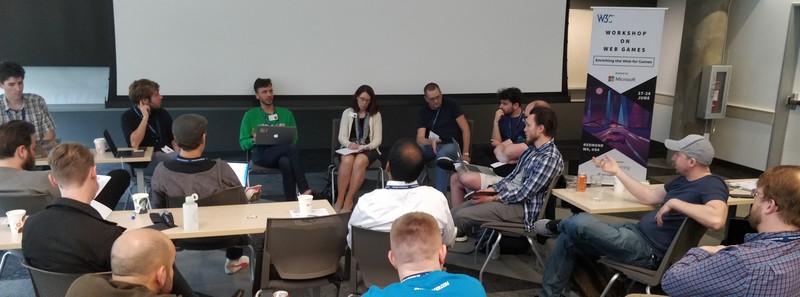IT Info
Understand Trend
W3C Workshop on Improving Web Based Games

The World Wide Web Consortium (W3C) recently had a workshop on Web games in Redmond, WA, USA. The workshop was primarily aimed at bringing together browser vendors, game engines developers, games developers, game distributors, and device manufacturers to enrich the Open Web Platform with additional technologies for games.
Led by the inventor of Web (World Wide Web) Tim Berners-Lee, the W3C is an international community where Member organizations, a full-time staff, and the public work together to develop Web standards.
The workshop was attended by about 100 participants that highlighted support for real threading on the Web for 3D rendering and advanced audio processing as a core need to address to run AAA content on the Web.
The participants also discussed proposals to improve support for cloud gaming scenarios, including proposals to reduce I/O latency and improve communication in real-time between clients and servers (the WebTransport proposal).
“All you had to do [in 2011] was just make a game ... and it would be everywhere, and it just worked. A few years later we have a situation in which some developers are claiming that they made 500 games in a few years, and we have hundreds, if not thousands of developers like these. It's super easy to create an HTML5 game compared to a few years ago,” said Andrzej Mazur in a session.
Chris Hawkins presented reports on Facebook's experience with Instant Games, HTML5 games that run in a WebView within Facebook's app, while Christian Rudnick and Gili Zeevi gave details of recurring issues they encounter with Web games they develop or that get published on Softgames' platform.
Some of the Topics covered in the workshop
Threading support on the Web: How can games efficiently spread CPU intensive operations across CPU cores while maintaining complex hierarchical structures such as octrees?
WebAssembly: Luke Wagner described the history and status of WebAssembly in 2019, and detailed the WebIDL Bindings proposal that will make WebAssembly bindings from/to WebIDL APIs more efficient. “The goal [of the Mozilla Games program] at the time was: if we make the web platform better for games, then in addition to allowing games to run, which is really cool, we'll be making it better for all sorts of use cases,” said Wagner.
3D rendering: How can game developers render stunning 3D graphics in real-time on the Web?
Assets loading & storage: Andrew Sutherland reviews the different technologies available for storage of game assets: cookies, localStorage, IndexedDB, and the Cache API. He emphasized the cost of serialization/deserialization.
Games accessibility: In this session, Luis Rodriguez reviewed different types of users’ motor impairment conditions such cerebral palsy, neural tube defects, and trauma incidents, and their implication in terms of accessibility needs, and of ability switches (sip and puff headsets, wands, etc.) that users may use to control a game.
New technical proposals made at the workshop
These are some of the new proposed technical needs that would be beneficial for the games ecosystem on the Web.
- Improve threading support on the Web and notably allow sharing of structured objects across workers. A proposed solution in this area would likely be at the ECMAScript level.
- Raise the idea of a native 3D element for the Web in the Immersive Web Community.
- Expose multiple buckets per origin to accommodate different permanent/temporary storage scenarios. Investigate suitability of Background Fetch to make such a feature palpable to users.
- Raise the pronunciation of gender-inclusive forms in the Pronunciation Task Force of the Accessible Platform Architectures (APA) Working Group.
- Flesh out a proposal to extend VideoGame in schema.org to improve the discoverability of Web games.
The 2-day workshop came to an end with appreciations to Microsoft for hosting, Facebook Gaming for sponsoring, the Program Committee for organizing the event, and all participants for their contributions.










